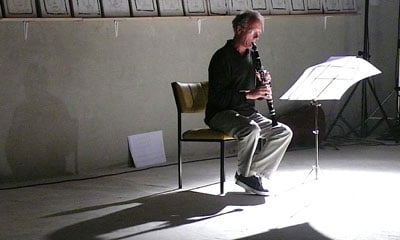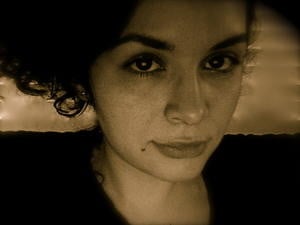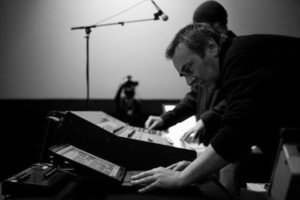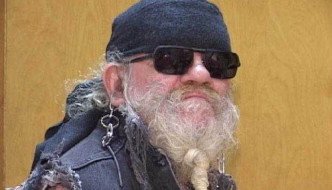Preview: Huddersfield Contemporary Music Festival
November 11, 2015

Photo © Joachim Eckl
Huddersfield Contemporary Music Festival boasts a list of thirty ticketed concerts, at starting times ranging from 10am to 11pm, over ten days, involving 33 world premieres and 46 UK first performances. Plus open ensemble workshops, exhibitions, pre-concerts talks, films, ubiquitous sound installations, meet-the-composer forums, academic lectures on ethnographics amongst other matters, family-focused events and sessions for child-based creative theatre convey perfectly the breathless pace of a modern musical festival.
It is easy and cheap to regard contemporary classical music much like Oscar Wilde’s Lady Bracknell feared French songs at her soirées: “People either look shocked, which is vulgar, or laugh, which is worse.” This has probably been the natural reaction to modernism ever since some anonymous monk’s blunder introduced harmony into the Western canon for the first, but not the last, time.

Marisol Jiménez
One of the headline ensembles, HCMF’s abiding favourite, the London Sinfonietta (Sat 21 Nov, St. Paul’s Hall, 12.30pm), directed by Leeds Conductors’ Competition winner, Garry Walker, premieres a new work by Mexican multi-disciplinary artist Marisol Jiménez. A pupil of Brian Ferneyhough at Stanford, Jiménez focuses on the tactile process of sound creation and her customary method is to utilise electronic and field recordings alongside improvisations on found objects and home-made instruments. The new work is a joint HCMF and London Sinfonietta commission, so she will have had the line-up of single winds and string quintet in mind when writing it.
Super-minimalist, though not in a Steve Reich way, and ultra-tonalist, though Anton Reicha he isn’t either, Laurence Crane’s Second Chamber Symphony is also programmed. Crane turned to composing after failed teenage attempts to emulate Mike Oldfield of Tubular Bells in playing and multi-tracking all the instruments himself. He found it more rewarding to write out the notes and leave their delivery to others.
The Festival’s Composer-in-Residence, Swiss-born Jürg Frey, naturally has his music played just about everywhere, but there is an opportunity to meet him (Sun 22 Nov, Heritage Quay, 11am) and then to hear his Second and Third String Quartets (Sun 22 Nov, St. Paul’s Hall, 1pm) played by the Quator Bozzini. Frey is a member of the Wandelweiser collective and his music is often inspired by that of John Cage. A 2006 recording of his first two quartets by the Bozzini was heralded by Richard Pinnell as “achingly beautiful” and “dripping with the intensity and sensuality created by formidable musicians playing difficult music.”
Polish composers also feature prominently. Agata Zubel appears as vocalist with Austrian supergroup Klangfourm Wien in her own visceral setting of Beckett’s Not I (Fri 20 Nov, St. Paul’s Hall, 6pm). Compositions by Jagoda Szmytka, in which other media “for ear, eye and thought” are weaved into her musical landscapes are programmed by the Riot Ensemble (Fri 20 Nov, Bates Mill Blending Shed, 9.30pm) and Frankfurt-based Ensemble Interface (Mon 23 Nov, St. Paul’s Hall, 7pm).

Zbigniew Karkowski (1958-2013) (Fot. Archiwum)
Tomasz Sikorski was a philosopher-minimalist who studied with Boulanger in Paris and at the Columbia-Princeton electronic music centre. Fellow-composer Kasia Glowicka describes his output as being meditative, but with a longing for an almost brutal beauty. An all-Sikorski concert is given by veteran British pianist John Tilbury and the music collective Noszferatu XL, to be broadcast live on Radio 3 (Sat 21 Nov, Bates Mill Blending Shed, 10pm).
A Pole most definitely apart comes in the form of Zbegniew Karkowski. He was an experimental noise musician who exploded toilets and blew out loudspeakers in his quest for novel frequencies and new experiences. Karkowski’s creations feature in concerts by Franco-Polish composer/performer Kasper T Toeplitz (Sat 21 Nov, Bates Mill Blending Shed, 10pm), in a percussion and bass concert by Daniel Buess and Aleksander Gabrys, exploring the composer’s indebtedness to Xenakis (Tue 24 Nov, Bates Mill Blending Shed, 4pm) and by his friend and close collaborator Anton Lukoszevieze with his ensemble Apartment House, who offer a new version of Karkowski’s elemental Field (2006) for amplified string quartet and live-electronics (Fri 27 Nov, Bates Mill Blending Shed, 11pm).
See http://www.hcmf.co.uk/calendar/year/2015/4 for full festival details.


Comments